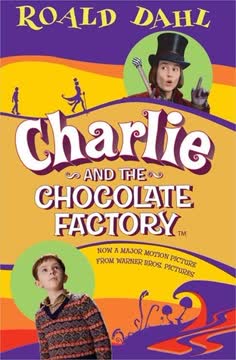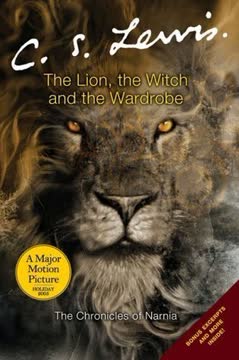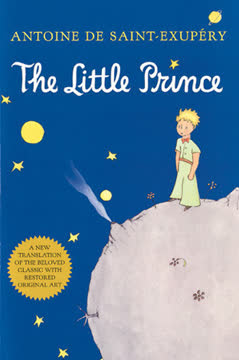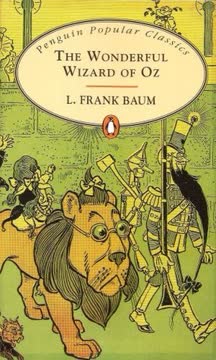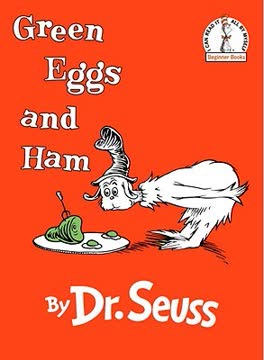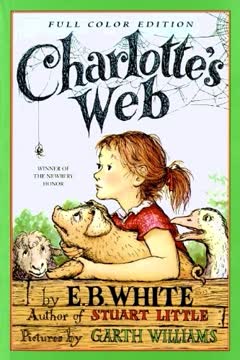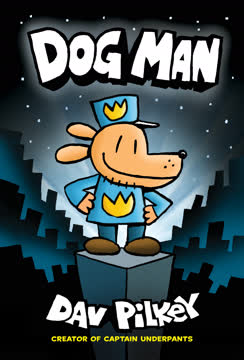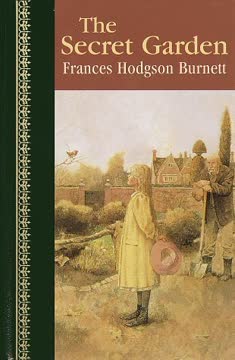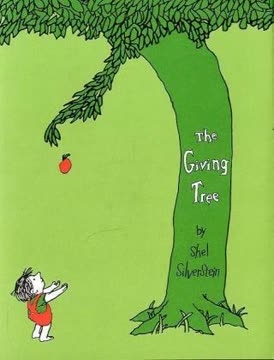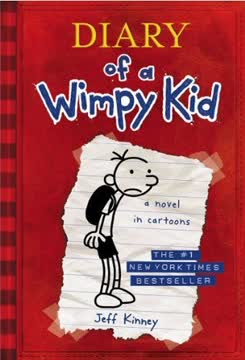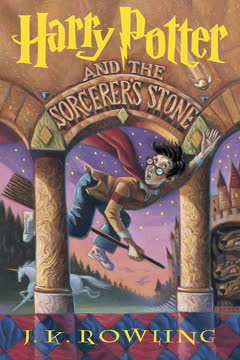Plot Summary
Charlie's Hungry Beginnings
Charlie Bucket lives in a tiny, cold house with his parents and four bedridden grandparents. The family is desperately poor, surviving on cabbage soup and bread, with only Mr. Bucket's meager toothpaste factory job to support them. Charlie's greatest desire is chocolate, which he receives just once a year on his birthday. The presence of the world's largest chocolate factory, owned by the mysterious Willy Wonka, looms over Charlie's daily life, filling him with both hope and torment as he dreams of tasting more than his annual treat.
The Mysterious Chocolate Factory
Willy Wonka's chocolate factory is legendary for its size, innovation, and secrecy. Years ago, Wonka closed the factory to outsiders after rival candy makers sent spies to steal his secrets. Yet, the factory's chimneys still smoke, and mysterious small workers—Oompa-Loompas—are glimpsed through the windows. The townspeople, including Charlie and his Grandpa Joe, are fascinated by the factory's mysteries and the eccentric genius of Mr. Wonka, who is rumored to be a magician with sweets.
Golden Tickets Announced
Willy Wonka announces a worldwide contest: five Golden Tickets are hidden in his chocolate bars, and the finders will receive a tour of the factory and a lifetime supply of sweets. The world goes wild, with people everywhere frantically buying chocolate bars in hopes of finding a ticket. For Charlie, who can barely afford one bar a year, the odds seem impossible, but the dream persists.
The Greedy and the Spoiled
The first four tickets are found by children who each embody a vice: Augustus Gloop, a gluttonous boy; Veruca Salt, a spoiled rich girl; Violet Beauregarde, an obsessive gum-chewer; and Mike Teavee, a television-obsessed boy. Their stories, splashed across newspapers, highlight their excesses and the indulgence or neglect of their parents. Charlie's family watches with a mix of fascination and resignation, believing their chances are gone.
Charlie's Miraculous Find
As winter deepens and the family's situation grows dire, Charlie finds a coin in the snow and buys two chocolate bars. Miraculously, the second contains the final Golden Ticket. The family is overjoyed, and Grandpa Joe, rejuvenated by excitement, insists on accompanying Charlie to the factory. The ticket promises not just sweets, but hope for a better future.
The Factory Gates Open
On the appointed day, the five children and their guardians gather at the factory gates, surrounded by crowds and reporters. Willy Wonka himself greets them—a quirky, energetic man with a flair for the dramatic. The gates open, and the group steps into a world of unimaginable wonders, where everything is edible and the rules of reality seem suspended.
Wonders and Warnings
Inside, the visitors marvel at chocolate rivers, edible meadows, and fantastical inventions. Oompa-Loompas, Wonka's tiny, musical workers, are everywhere. Wonka's warnings about not touching or tasting are often ignored by the children, whose flaws soon lead them into trouble. The factory is both a paradise and a test, revealing the true nature of its guests.
Augustus and the Chocolate River
Augustus Gloop, unable to resist, drinks from the chocolate river and falls in. He is sucked up a pipe to the Fudge Room, to his parents' horror. The Oompa-Loompas sing a moralizing song about greed, and Wonka assures everyone Augustus will be fine—though changed. The tour continues, with one child down.
Violet's Chewing Catastrophe
In the Inventing Room, Violet snatches an experimental gum that contains a three-course meal. Despite Wonka's warnings, she chews it and turns into a giant blueberry. Oompa-Loompas roll her away to be "juiced," singing about the dangers of compulsive habits. The group, now smaller, moves on, the lessons growing clearer.
Veruca's Squirrel Showdown
In the Nut Room, Veruca demands a trained squirrel. She enters the room against Wonka's orders and is judged a "bad nut" by the squirrels, who toss her down the garbage chute, followed by her frantic parents. The Oompa-Loompas' song blames not just Veruca, but her parents for her upbringing. The tour continues with only two children left.
Mike's Television Trouble
In the Television Room, Mike Teavee insists on being sent by Wonka's new invention, which transmits chocolate (and, as Mike proves, people) by television. He is shrunk to a few inches tall, and his parents must take him to be stretched back to size. The Oompa-Loompas sing about the perils of too much television and the loss of imagination.
The Last Child Standing
With all the other children gone, only Charlie remains. Wonka, delighted, reveals that Charlie has "won" the true prize. The tour is not just about sweets, but about finding a worthy heir. Charlie's honesty, kindness, and humility have set him apart from the others.
The Great Glass Lift
Wonka whisks Charlie and Grandpa Joe into the Great Glass Lift, which bursts through the factory roof and soars over the city. From above, they see the other children leaving, each changed by their experiences. The lift's magical journey symbolizes Charlie's elevation from poverty to possibility.
The Fate of the Others
Augustus is now thin, Violet is purple, Veruca and her parents are covered in garbage, and Mike is stretched tall and thin. Each child's flaw has been literally and comically reflected in their fate, serving as a cautionary tale for both them and the reader.
Wonka's True Intention
Wonka reveals his real motive: he is seeking a child to inherit his factory, someone pure-hearted and imaginative who will care for the Oompa-Loompas and continue his legacy. He chose children because adults are too set in their ways. Charlie's goodness and gratitude make him the perfect choice.
A Family's New Home
Wonka brings Charlie's entire family—bed and all—into the factory to live. The Buckets' days of hunger and hardship are over. Charlie's kindness and humility have not only saved himself, but also transformed the lives of those he loves, fulfilling the story's promise of hope and reward for the deserving.
Characters
Charlie Bucket
Charlie is the story's protagonist, a poor but good-hearted boy whose greatest wish is simply to taste chocolate. His empathy, humility, and selflessness set him apart from the other children. Despite his deprivation, he remains generous and hopeful, sharing his rare treats with his family. Charlie's psychological resilience and moral integrity are tested and proven throughout the factory tour, culminating in his selection as Wonka's heir. His journey is one from scarcity to abundance, but more importantly, from obscurity to significance.
Willy Wonka
Wonka is the whimsical, unpredictable owner of the chocolate factory. He is both a genius inventor and a trickster figure, delighting in the fantastical and the absurd. His childlike enthusiasm masks a shrewd judge of character; the factory tour is as much a test as a spectacle. Wonka's psychological complexity lies in his blend of playfulness and seriousness, his distrust of adults, and his longing for a worthy successor. He is both mentor and gatekeeper, rewarding virtue and punishing vice through the factory's trials.
Grandpa Joe
Grandpa Joe is Charlie's closest confidant and the family's storyteller. His excitement about Wonka's factory rekindles his youthful spirit, and he becomes Charlie's companion on the tour. Grandpa Joe's role is both emotional and practical—he encourages Charlie's dreams and provides wisdom and perspective. His own transformation, from bedridden to energetic, mirrors the story's theme of hope and renewal.
Augustus Gloop
Augustus is defined by his insatiable appetite and lack of self-control. His greed leads to his downfall in the chocolate river, serving as a cautionary example of unchecked desire. Psychologically, Augustus is a product of indulgent parenting and a culture of excess, unable to moderate his impulses.
Veruca Salt
Veruca is the archetype of the spoiled child, accustomed to getting whatever she wants through tantrums and manipulation. Her parents' enabling behavior is as much to blame for her fate as her own actions. Veruca's psychological profile is one of entitlement and lack of boundaries, leading to her literal and figurative disposal by the factory's squirrels.
Violet Beauregarde
Violet's identity revolves around her gum-chewing habit and her desire to be the best. Her disregard for warnings and rules results in her transformation into a blueberry. Violet's psychological flaw is her compulsiveness and need for attention, which blinds her to consequences.
Mike Teavee
Mike is addicted to television and violence, showing little interest in anything else. His skepticism and arrogance lead him to misuse Wonka's technology, shrinking himself in the process. Mike's character is a critique of passive consumption and the numbing effects of media.
Mr. and Mrs. Bucket
Charlie's parents are gentle, caring, and enduring in the face of hardship. They often go without so Charlie can have a little more. Their psychological strength lies in their quiet resilience and devotion to family, providing a stable foundation for Charlie's character.
The Oompa-Loompas
The Oompa-Loompas are Wonka's loyal employees, rescued from poverty and danger in Loompaland. They serve as a Greek chorus, commenting on the children's misbehavior through song. Their presence adds whimsy but also delivers the story's moral lessons with humor and irony.
The Other Parents
The parents of Augustus, Veruca, Violet, and Mike are complicit in their children's downfalls, either through indulgence, neglect, or misplaced priorities. Their psychological profiles reflect the dangers of poor parenting and the transmission of vice from one generation to the next.
Plot Devices
The Golden Ticket Contest
The contest is both a marketing ploy and a narrative device to gather a diverse group of children, each representing a different vice. It creates suspense, drives the plot, and sets up the moral framework of the story, where virtue is tested and vice is punished.
The Factory as a Moral Testing Ground
Wonka's factory is more than a place of wonder; it is a crucible where each child's flaw is exposed and punished in a manner both poetic and comical. The rooms and inventions serve as temptations, and the children's fates are foreshadowed by their personalities and choices.
Oompa-Loompa Songs
After each child's mishap, the Oompa-Loompas perform songs that satirize and moralize, reinforcing the story's lessons. These songs break the fourth wall, speaking directly to the reader and providing both humor and reflection.
The Great Glass Lift
The lift's ability to move in any direction, even out of the factory, represents the limitless possibilities that await Charlie. It is both a literal and metaphorical vehicle for escape, elevation, and new beginnings.
Foreshadowing and Irony
From the early descriptions of each child's flaw to Wonka's cryptic warnings, the story is laced with foreshadowing. Irony abounds as the children's desires lead directly to their undoing, and the least likely candidate—Charlie—emerges as the true winner.
Analysis
Roald Dahl's "Charlie and the Chocolate Factory" is a modern fairy tale that uses whimsy and exaggeration to deliver sharp social commentary on greed, entitlement, and the importance of humility. Each child's downfall is a direct result of their own vice, and the Oompa-Loompas' songs make explicit the moral lessons often left implicit in children's literature. The story critiques not only the children but also their parents and, by extension, the society that enables such behavior. Charlie's victory is not just a reward for goodness, but a call to value kindness, gratitude, and imagination over consumption and self-indulgence. The book's enduring appeal lies in its blend of fantasy, humor, and moral clarity, offering both escapism and a mirror to the reader's own world.
Last updated:
FAQ
Synopsis & Basic Details
What is Charlie and the Chocolate Factory about?
- A Quest for Wonder: Charlie and the Chocolate Factory follows young Charlie Bucket, a boy from an impoverished family, whose greatest dream is to visit the mysterious, world-famous chocolate factory owned by the eccentric Willy Wonka. The factory, long closed to outsiders, suddenly announces a contest: five Golden Tickets hidden in chocolate bars will grant a tour and a lifetime supply of sweets.
- A Moral Gauntlet: As the world goes into a frenzy, four tickets are found by children embodying various vices – gluttony, entitlement, obsession, and media addiction. Against all odds, Charlie finds the final ticket, accompanied by his enthusiastic Grandpa Joe, and embarks on a fantastical, yet perilous, tour through Wonka's wondrous and bizarre factory.
- A Test of Character: The tour becomes a series of trials where each of the misbehaving children meets a comical, yet fitting, downfall, leaving only Charlie. Ultimately, the story reveals Wonka's true intention: to find a worthy, pure-hearted successor to inherit his confectionery empire, transforming Charlie's life and his family's fortunes.
Why should I read Charlie and the Chocolate Factory?
- Imaginative Escapism: Roald Dahl's Charlie and the Chocolate Factory offers an unparalleled journey into a world of pure imagination, filled with edible landscapes, fantastical inventions, and quirky characters, making it a delightful escape from reality. The vivid descriptions, like the "great brown river" of chocolate and "minty sugar" grass, ignite the senses and transport readers.
- Timeless Moral Lessons: Beneath its whimsical surface, the novel delivers sharp, enduring social commentary on the perils of greed, entitlement, and overindulgence, contrasting them with the virtues of humility, kindness, and selflessness. The Oompa-Loompa songs, in particular, provide memorable, often humorous, moral lessons.
- Enduring Character Appeal: Readers connect deeply with Charlie Bucket's underdog story and his unwavering goodness despite hardship, while Willy Wonka's enigmatic and unpredictable personality keeps the narrative fresh and exciting. The book's blend of humor, suspense, and heartwarming resolution ensures its lasting appeal across generations.
What is the background of Charlie and the Chocolate Factory?
- Post-War Industrial Secrecy: The novel, published in 1964, subtly reflects the mid-20th century industrial landscape where corporate espionage was a real concern, particularly in competitive industries. Wonka's extreme measures to protect his recipes ("Because of spies," Grandpa Joe explains in Chapter 4) mirror real-world anxieties about intellectual property and trade secrets.
- Dahl's Personal Experiences: Roald Dahl's own childhood experiences with chocolate companies influenced the story. As a boy, he attended Repton School, near Cadbury's chocolate factory, which occasionally sent new chocolate samples to the students for testing. This direct interaction with confectionery innovation and competition likely inspired the secretive, inventive world of Wonka.
- Critique of Consumerism: The global frenzy for Golden Tickets and the behavior of the "bad" children can be seen as a commentary on burgeoning consumer culture and the excesses of materialism in the post-war era. The story implicitly critiques parents who indulge their children's every whim, highlighting the societal consequences of unchecked desire.
What are the most memorable quotes in Charlie and the Chocolate Factory?
- "I, Willy Wonka, have decided to allow five children – just five, mind you, and no more – to visit my factory this year.": This quote from the Golden Ticket announcement (Chapter 5) is the inciting incident, setting off the global chocolate-buying frenzy and establishing the exclusivity and mystery of Wonka's world. It immediately signals the extraordinary nature of the contest.
- "There's no earthly way of knowing / Which direction they are going!": Sung by Mr. Wonka himself during the dark boat ride (Chapter 18), this line encapsulates his whimsical, unpredictable nature and the chaotic, often disorienting, experience of being in his factory. It highlights the blend of wonder and mild peril that defines the tour.
- "IT ROTS THE SENSES IN THE HEAD! / IT KILLS IMAGINATION DEAD!": From the Oompa-Loompas' song about Mike Teavee (Chapter 27), this powerful and often-quoted couplet serves as a direct, emphatic critique of excessive television consumption. It distills one of the book's core moral messages about the importance of reading and imaginative play over passive media.
What writing style, narrative choices, and literary techniques does Roald Dahl use?
- Exaggerated Characterization: Dahl employs hyperbole to create memorable, archetypal characters whose flaws are magnified to comical and cautionary extremes, such as Augustus Gloop's "enormously fat" body or Veruca Salt's incessant screaming. This technique makes the moral lessons clear and the characters unforgettable, enhancing the story's fairy-tale quality.
- Whimsical and Inventive Language: The narrative is rich with playful, often alliterative, language and invented words like "Whipple-Scrumptious Fudgemallow Delight" and "snozzberries." This creates a unique, fantastical atmosphere that perfectly matches the factory's wonders, drawing readers into Wonka's imaginative world.
- Direct Address and Moral Commentary: Dahl frequently breaks the fourth wall, speaking directly to the reader with asides and rhetorical questions, particularly through the Oompa-Loompa songs. This narrative choice reinforces the story's didactic purpose, ensuring the moral implications of the children's actions are explicitly understood and absorbed by the audience.
Hidden Details & Subtle Connections
What are some minor details that add significant meaning?
- Charlie's Measured Indulgence: The description of Charlie making his single birthday chocolate bar last for "more than a month" by taking "tiny nibbles" (Chapter 1) highlights his profound self-control and appreciation, a stark contrast to the other children's immediate, greedy consumption. This detail subtly foreshadows his worthiness and ability to savor life's pleasures, unlike the gluttonous Augustus.
- The Shopkeeper's Kindness: When Charlie finds the Golden Ticket, the fat shopkeeper not only protects him from the clamoring crowd but also whispers, "I have a feeling you needed a break like this. I'm awfully glad you got it. Good luck to you, sonny" (Chapter 11). This small act of genuine empathy from a stranger underscores the pervasive hardship Charlie faces and the universal recognition of his deserving nature, adding a touch of real-world warmth to the fantastical narrative.
- Wonka's "Hair Cream" and "Whips": During the boat ride, the names on the storeroom doors, like "HAIR CREAM" in Storeroom Number 54 and "WHIPS – ALL SHAPES AND SIZES" in Storeroom Number 71 (Chapter 18), initially seem nonsensical or even sinister. Wonka's quick, absurd explanations ("For whipping cream, of course") serve as a subtle misdirection, hinting at the factory's bizarre logic while also showcasing his playful, almost taunting, relationship with the truth and his visitors.
What are some subtle foreshadowing and callbacks?
- Wonka's Initial Warnings: From the moment the tour begins, Mr. Wonka repeatedly warns the children not to "wander off by yourselves" or "lose your heads" (Chapter 14), and later, "No touching, no meddling, and no tasting!" (Chapter 19). These seemingly innocuous instructions subtly foreshadow the precise ways each child will disregard rules and meet their specific, fitting downfall, highlighting their inherent lack of discipline.
- The "Bad Nut" Test: Mr. Wonka explains that his squirrels "tap each walnut with their knuckles to be sure it's not a bad one! If it's bad, it makes a hollow sound, and they don't bother to open it. They just throw it down the rubbish chute" (Chapter 24). This detailed explanation directly foreshadows Veruca Salt's fate, as the squirrels apply the same "test" to her, deeming her a "bad nut" and disposing of her in the same chute, a poetic justice for her spoiled nature.
- Oompa-Loompa Origin and Charlie's Hunger: Wonka's tale of the Oompa-Loompas' starvation and their craving for cacao beans (Chapter 16) subtly mirrors Charlie's own desperate hunger for chocolate and food in general. This parallel establishes a shared experience of deprivation, creating an unspoken bond between Charlie and the Oompa-Loompas, and reinforcing Charlie's empathy, which sets him apart from the other children who have never known true want.
What are some unexpected character connections?
- Wonka's Shared Loneliness with Charlie: While seemingly disparate, both Wonka and Charlie are presented as isolated figures before the factory tour. Charlie is isolated by poverty and hunger, while Wonka, despite his genius, lives in self-imposed isolation, distrusting adults. Their connection is forged not just by Charlie's goodness, but by a shared underlying loneliness and a longing for genuine connection and understanding, which Wonka finds in Charlie.
- The Oompa-Loompas as Wonka's Family: Beyond being mere workers, the Oompa-Loompas function as Wonka's surrogate family and loyal companions, rescued from a harsh existence and now dependent on him. Their collective songs and synchronized movements suggest a deep, almost symbiotic, relationship with Wonka, highlighting his paternal (or at least, provider) role and his need for a successor who will care for them.
- Grandpa Joe's Rejuvenation and Wonka's Youthful Spirit: Grandpa Joe's transformation from a bedridden, frail old man to an energetic, dancing companion for Charlie (Chapter 12) mirrors Wonka's own perpetually youthful and playful demeanor. This connection suggests that imagination, wonder, and a sense of adventure are not limited by age, and that the factory itself is a place where such spirits thrive.
Who are the most significant supporting characters?
- Grandpa Joe: The Catalyst of Hope: While the existing analysis notes his support, Grandpa Joe is crucial as the active agent of hope and belief for Charlie. He is the one who shares his secret sixpence (Chapter 9), encourages Charlie to buy the second bar, and is the first to truly believe in Charlie's luck, directly enabling the Golden Ticket discovery. His unwavering faith and shared excitement are vital to Charlie's journey.
- The Shopkeeper: A Glimpse of External Goodness: The unnamed shopkeeper who sells Charlie the winning chocolate bar (Chapter 11) plays a small but pivotal role. His immediate recognition of the ticket's value, his protection of Charlie from the mob, and his parting words of genuine well-wishing ("I have a feeling you needed a break like this. I'm awfully glad you got it.") provide a rare moment of unadulterated kindness from an outside world often portrayed as indifferent or greedy.
- The Oompa-Loompas: The Moral Chorus and Factory's Soul: Beyond their role as workers and singers, the Oompa-Loompas are the living embodiment of Wonka's unique world. Their collective presence, their synchronized actions, and their direct, often satirical, commentary through song (e.g., Chapter 17, 21, 24, 27) are integral to the factory's atmosphere and the story's moral framework, making them far more than just background characters.
Psychological, Emotional, & Relational Analysis
What are some unspoken motivations of the characters?
- Wonka's Search for a Pure Legacy: Beyond simply needing an heir, Wonka's elaborate contest and the specific "punishments" suggest a deep-seated desire to find someone who embodies the opposite of the vices he despises in the adult world. His motivation is not just about business continuity, but about preserving the spirit of his factory – a place of pure, uncorrupted imagination and joy, free from greed and cynicism.
- Charlie's Quiet Resilience: Charlie's motivation isn't just about chocolate; it's about survival and supporting his family. His decision to share his birthday chocolate (Chapter 7) and his initial thought to use the found fifty-pence piece for "FOOD" for his family (Chapter 10) reveal a profound, unspoken sense of responsibility and selflessness that transcends his personal desires.
- The Grandparents' Collective Hope: While bedridden and seemingly passive, the four grandparents' collective excitement and investment in Charlie's dream (e.g., "Wouldn't it be something, Charlie, to open a bar of chocolate and see a Golden Ticket glistening inside!" - Grandpa Joe, Chapter 5) reveal their deep-seated longing for a better life for their beloved grandson. Their shared hope becomes a powerful, unspoken force driving the family's emotional landscape.
What psychological complexities do the characters exhibit?
- Wonka's Benevolent Tyranny: Willy Wonka presents a complex psychological profile, blending childlike wonder and creative genius with a detached, almost cruel, amusement at the children's misfortunes. His "giggling madly behind his beard" (Chapter 17) while discussing Augustus's fate, or his casual dismissal of the other children's transformations, suggests a mind that operates on its own unique moral and logical plane, prioritizing the factory's integrity and his grand design over conventional empathy.
- The Other Parents' Enabling Blindness: The parents of Augustus, Veruca, Violet, and Mike exhibit a psychological complexity rooted in their inability to see or correct their children's destructive behaviors. Mrs. Gloop's insistence that Augustus's eating is "all vitamins" (Chapter 6), Mr. Salt's willingness to buy "hundreds of thousands" of chocolate bars (Chapter 6), and Mrs. Beauregarde's pride in Violet's "clever" gum-chewing (Chapter 21) reveal a deep-seated denial and a projection of their own desires onto their children, leading to their shared downfall.
- Charlie's Moral Compass in Adversity: Charlie's psychological strength lies in his unwavering moral compass despite extreme deprivation. His refusal to take his parents' bread (Chapter 10) and his immediate instinct to share his found money and chocolate (Chapter 10, 11) demonstrate an internal fortitude and generosity that is not a reaction to the factory's tests, but an inherent part of his character, forged by hardship rather than corrupted by it.
What are the major emotional turning points?
- The Discovery of the Golden Ticket: This moment (Chapter 11) is the emotional climax for Charlie and his family, transforming their despair into explosive joy and hope. Grandpa Joe's sudden leap from bed after twenty years ("Yippeeeeeeee!") and his "dance of victory" (Chapter 12) vividly illustrate the profound emotional impact, symbolizing the breaking of their long-standing cycle of poverty and resignation.
- Wonka's Revelation of the Heir: The moment Mr. Wonka reveals to Charlie that he has "won" the entire factory (Chapter 28) is a pivotal emotional turning point, shifting the narrative from a tour of wonders to a profound act of inheritance. Charlie's initial disbelief, followed by a quiet acceptance, marks his transition from a hopeful observer to the chosen successor, fulfilling the story's underlying theme of virtue rewarded.
- The Family's Relocation to the Factory: The dramatic scene where the Great Glass Lift crashes through the Bucket house roof to collect the entire family (Chapter 30) is an emotional crescendo. It signifies the complete reversal of their fortunes, moving from a life of cold and hunger to one of unimaginable abundance and opportunity, solidifying the story's heartwarming conclusion and the triumph of Charlie's goodness.
How do relationship dynamics evolve?
- Grandpa Joe and Charlie's Shared Adventure: The relationship between Grandpa Joe and Charlie evolves from a comforting, storytelling bond (Chapter 2) into a dynamic partnership during the factory tour. Grandpa Joe becomes Charlie's enthusiastic advocate and protector, while Charlie's quiet observations and moral integrity often guide Grandpa Joe's reactions, deepening their mutual respect and affection as they navigate the factory's wonders and dangers together.
- Wonka's Shifting Perception of Charlie: Initially, Wonka treats Charlie with the same playful, somewhat detached eccentricity as the other children, but as the tour progresses, his interactions with Charlie become increasingly direct and serious. Wonka's "bright twinkling blue eyes rested for a moment on Charlie's face" (Chapter 28) before revealing the inheritance, signifying a growing recognition and trust that culminates in a mentor-protégé relationship, built on Charlie's demonstrated character.
- The Other Parents' Disintegration: The relationships between the "bad" children and their parents deteriorate under the factory's pressure. Mr. Salt's exasperated "What a lot of rubbish there's going to be today!" (Chapter 24) as his wife falls down the chute, or Mr. Teavee's immediate desire to throw out the television after Mike shrinks (Chapter 27), highlight the breakdown of their enabling dynamics. Their children's misfortunes expose the superficiality and dysfunction of their family bonds, contrasting sharply with the Buckets' enduring unity.
Interpretation & Debate
Which parts of the story remain ambiguous or open-ended?
- The Oompa-Loompas' True Status: While Wonka claims to have "rescued" the Oompa-Loompas from Loompaland and pays them in cacao beans (Chapter 16), their living conditions within the factory and their seemingly forced participation in the "punishments" raise questions about their true autonomy. Readers can debate whether they are willing employees or a form of indentured servitude, adding a layer of ethical ambiguity to Wonka's character.
- The Severity of the Children's Fates: The story leaves the precise long-term consequences for Augustus, Violet, Veruca, and Mike somewhat open-ended. Wonka assures their parents they "all come out in the wash" (Chapter 29), but their transformations (thin, purple, garbage-covered, stretched) are permanent physical alterations. This ambiguity allows readers to ponder whether the "punishments" are truly just and reversible, or if they represent a more permanent, symbolic consequence
Review Summary
Charlie and the Chocolate Factory is a beloved children's classic that captivates readers with its whimsical plot and memorable characters. The story follows poor Charlie Bucket as he wins a golden ticket to tour Willy Wonka's mysterious chocolate factory. Readers praise Dahl's vivid imagination, dark humor, and moral lessons. While some note the book's dated elements and occasional cruelty, most agree it remains a timeless tale of wonder and good triumphing over greed. The novel's enduring popularity is evident in its multiple film adaptations and continued readership.
Similar Books
Download PDF
Download EPUB
.epub digital book format is ideal for reading ebooks on phones, tablets, and e-readers.
